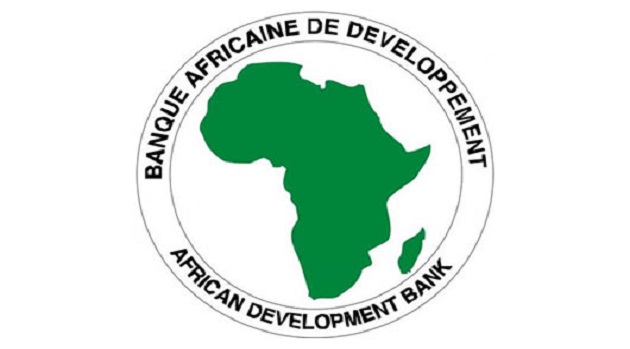General News
Bulk SMS is Unexploited Gold-Mine -Akintayo

Stephen Akintayo, chief executive officer of Gileadbalm Group, is an inspirational speaker, youth leader, entrepreneur, a digital marketing consultant with account of 10 of multi-nationals in Nigeria.
His company’s product and services span from Information Technology, Telecom, Marketing Consulting, Real Estate, Oil and Gas and Agriculture.
Akintayo also has a Vision of helping in the establishment and growth of 20,000 businesses by the year 2025 with his CEOProtege project.
In this interview with peter ugwu, he listed Bulk Short Message System as a platform yet to be fully exploited in the Nigerian telecom sector.
Gileadbalm’s Areas of Interest
We are focusing majorly on online and Mobile Services because it is not just viable but even develop countries see it as the future.
It is through online that you can start a company and in 6 years you are a Billionaire given facebook as a case study.
Africa is not there yet but soon we will be and that is why a smart entrepreneur will take position now.
Why?
It is easier to build online business than off line business and its cost effective. In the 70’s and 80’s when US economy had several challenges, online related was businesses were such that people like Bill Gate, Micheal Dell, Steve Jobs and other tech giants delved into’ surprisingly, that helped increase the GDP of the United States.
In a country like ours, where unemployment is over 40%, we need people who will build software instead of CV, business plans instead of profiles. I want to influence the establishment and strengthening of 20,000 businesses between now and 2025.
Technpreneurs Motivating Factors
To succeed as a Techprenenur, be ready to celebrate your small beginning. Life is in phases, Men are in sizes, live your size per time.
Like I often say that Techpreneurs are not big boys rather those who have monthly salary that are big boys because ego sells, “eno” sells, salary must be paid.
But as an entrepreneur, you must work hard else your business will not stand five years talk more of 50 years. In simple words, be patient, consistent and determine never to quit.
Potentials of Bulk SMS Sector
Bulk Short Message System (SMS) is an area Gileadbalm has been doing very great. Some people have asked why should a company, for instance, use that medium to reach out to its customers hence there are many channels available today.
Yes, text messaging is over 5billion naira industry that is far more valuable for small entrepreneurs than any other aspect of Telecom industry.
With just N35,000 you can start a bulk SMS business and if you are a skillful marketer you can grow that to multi-million business in less than three years.
It is a gold mine smart individuals should start their techpreneur from bulk SMS but don’t stay there. Any business that brings money on a daily bases is a business you cannot under-estimate.
Bulk SMS and Technological Know-How
Bulk SMS is not that technical. I studied microbiology and earn from online today. The challenge is that some get reseller website with a wrong company that uses Indian gateways that don’t deliver text message sent on their platform on time.
Under 30 seconds when you send message on our platform, it delivers hence we are indispensable. We are not cheap but reliable and the best. That is our goal and that should be the goal of anyone going into this industry.
Adoption Rate
The adoption rate is high. The same way every aspect of digital marketing is being embarrassed, is how bulk SMS thrives, because conventional Media is no longer at the reach of some companies, particularly those looking for measurable and effective platform for marketing. 98% of bulk SMS is open.
That is a massive rate. What is the issue however is getting accurate data to send advert SMS to and that is why we deal with sales of targeted GSM and email data.
Regulation
Some have suggested that bulk SMS should be regulated as NCC regulates the telecom SMS, but I think otherwise.
At least not really, because it is a saturated market and price is not the issue. Bulk SMS is lesser than N4 which is the normal price for sending through your telecom provider.
Still Bulk SMS can be customized, you can send to hundreds of thousands of people at the same time. Regulation should come in the form of enforcing quality service, checkmating fraudsters who use bulk SMS for scam purposes as well as other social devices.
Difference between Bulk SMS & eMail
First of all, note that not all the SMS you receive from MTN or GLO or Airtel is directly from them. We call some short code business, where you partner with the provider to provide services like quotes, sport scores and updates, health tips and people subscribe with N30 or N50.
That is another business under messaging. Targeted Bulk SMS is to send messages to your existing clients or potential clients to buy your products and services. We offer both services.
Increasing Unsolicited eMails and Privacy
There are two types. There are the fraudulent ones from people claiming to be your bank or that you have containers or won a gift etc.
The second type is now the legal ones and its rented email campaign whereby you send email to email ID that you bought from those whom the owner of such ID subscribe. For example, I can start a campaign online as I give certain services and ask people to subscribe and I may choose to sell those emails to a client so that he or she sends campaign of his or her services to such individuals. However, you can always unsubscribe from such mail.
eMail marketing is new to Nigeria but it is proving to be a very effective form of marketing since the advent of smartphone, where people now, instantly, get alert.
The best form however is to build your own list which we help companies build and we train cooperate bodies on this.
The bottom-line is that marketing techniques have change from online and conventional media to digital media and everyone must come on board or be left behind.
General News
More 14m Farmers to Benefit from AfDB-backed Initiative

Additional 14 million farmers in 37 low-income and vulnerable countries served by the African Development Fund, the Bank Group’s concessional financing window, are set to benefit from a technology initiative targeted at scaling up climate-resilient food production across the continent.

This comes after the African Development Bank Group (AfDB) and the International Institute of Tropical Agriculture (IITA) signed a $16.61 million grant agreement to launch the third phase of the Technologies for African Agricultural Transformation Programme (TAAT-III)
TAAT-III, funded by the African Development Fund, is expected to consolidate earlier gains benefiting 14 million more farmers while introducing a more sustainable, private sector-driven delivery approach.
AfDB said the initiative aims to reinforce seed and technology distribution systems, deepen partnerships with governments and agribusinesses, and expand the digital tools, including its technology e-catalogues and real-time monitoring platforms, to speed up deployment of high‑impact solutions.
Simeon Ehui, director general of IITA, commented: “TAAT-III allows us to deepen the delivery of science‑based solutions that improve farmers’ yields and livelihoods. Working with the Bank and our partners, we are scaling technologies that make Africa’s food systems more resilient and competitive.”
Since its launch in 2018, TAAT has become one of Africa’s most effective and transformative platforms for agricultural innovation, reaching nearly 25 million farmers and boosting productivity across major staples.
The initiative has expanded climate-resilient agricultural practices across over 35 million hectares.
In a statement, the AfDB said working closely with the Consultative Group of International Agricultural Research Centres and national and regional partners, TAAT has increased crop yields up to 69% and generated more than $4 billion in additional agricultural value.
Countries including Sudan, Ethiopia, Zambia, Zimbabwe, and Nigeria have recorded notable gains in staple crop productivity and resilience to climate shocks.
Nigeria has been a key beneficiary of TAAT initiatives. Under its Wheat Compact, farmers adopting improved heat-tolerant varieties more than doubled yields from 1.7 tons per hectare to 3.5 tons per hectare.
Programme supported seed system assessments also helped inform national reforms to expand access to certified, climate-resilient seeds.
Speaking at the signing ceremony, Abdul Kamara, director general of the Bank Group’s Nigeria Country Department, said the new phase will focus on scaling innovation more rapidly
Kamara said: “TAAT-III underscores the Bank’s commitment to ensuring that proven, climate-resilient agricultural technologies reach farmers faster and at scale. This phase strengthens the systems that deliver innovation, helping countries boost productivity, enhance resilience, and align agricultural transformation efforts with the Bank’s four new areas of emphasis, dubbed the Four Cardinal Points.”
General News
Newmark Webinar Explores How AI Could Transform Healthcare in Africa

A recent webinar hosted by the Newmark Group examined how Artificial Intelligence AI is changing healthcare across Africa, highlighting both its promise and its risks.

Newmark
The session, titled “AI in Healthcare: Opportunities and Challenges,” brought together healthcare and communications experts who agreed that AI can help fix long-standing problems in Africa’s health systems — but only if it is used carefully and responsibly.
Gilbert Manirakiza, CEO of Newmark Group in his opening speech said that AI is already helping speed up decision-making. He said AI tools can quickly analyse patient feedback, monitor conversations online, personalise health messages for different audiences and reduce delays in approvals.
He noted that many patients now turn to AI tools like ChatGPT to ask about symptoms and treatments. Because of this, he said health communicators must take responsibility for ensuring accurate information is available.
“If AI makes mistakes in healthcare, the consequences affect real lives,” he said.
Manirakiza stressed that Africa’s healthcare environment is unique. Many communities rely on mobile phones, speak different local languages and trust religious or community leaders. He warned that AI systems built mainly with Western data may misunderstand African realities.
He summarised his position simply: AI should help speed up work, but humans must ensure accuracy.
Daniel Marfo spoke about how AI is already being used in practical ways. Insurance companies now use AI systems to process thousands of claims daily. In hospitals, electronic medical records can suggest possible diagnoses and help doctors decide which patients need urgent attention.
He also said AI tools are helping detect problems in X-rays and MRI scans faster, especially in places where there are few radiologists. This reduces waiting time for patients.
At a national level, countries such as Rwanda, Sierra Leone and Ghana are building health data centres powered by AI to help governments track diseases and plan better responses.
However, Marfo warned that AI tools must be built using local medical guidelines to gain doctors’ trust. He emphasised that AI should support doctors, not replace them.
Dr. Afriyie Bempah focused on how AI can help countries prepare for health crises before they happen. He said resilience is not just about recovering from shocks, but about predicting them early.
He cited examples such as Kenya using AI to track mosquito patterns to predict malaria outbreaks, and Ghana using digital tools to improve disease reporting. In South Africa, digital health systems have been adapted to manage patients with chronic illnesses remotely.
He explained that linking clinics, pharmacies and supply chains through data sharing can help detect disease trends early and prevent large outbreaks.
During the question session, speakers discussed challenges such as data privacy, incorrect AI outputs, biased systems, and resistance from some healthcare workers.
They recommended clear rules for AI use, fact-checking AI-generated information, and creating internal review teams to monitor its application.
In their closing remarks, the panel encouraged healthcare professionals to learn how to work with AI tools to improve efficiency. They also urged young Africans to see healthcare technology as a major opportunity for innovation and investment.
The webinar concluded that AI is here to stay in healthcare. But its success in Africa will depend on strong regulation, local adaptation and continued human oversight — especially in a sector where mistakes can cost lives.
General News
Conoil Bonanza Winners Emerge

Conoil Plc is spreading joy this Valentine season as the first group of winners in its Valentine Bonanza promotion have been announced and rewarded. Launched on February 14, the campaign continues to delight customers at participating retail outlets.

The initial raffle draw, conducted on February 21, saw fortunate customers receive ₦10,000 worth of free petrol each. The draw was carried out publicly, with media representatives present to ensure full transparency. With the promotion still ongoing, more customers have the opportunity to join in and potentially be among the next winners.
A Conoil Management spokesperson explained that the initiative is a way to show appreciation to loyal customers for their ongoing support. “Our customers have responded impressively to the bonanza, with strong participation recorded across our stations,” the spokesperson said.
The second and final phase of the promotion is now in motion. Customers who purchase at least 10 litres of petrol at any participating Conoil station remain eligible to win in the grand finale raffle.
The grand finale is set for February 28 at 12 noon. Motorists in Lagos and Ogun states are encouraged to visit Conoil outlets to collect their tickets and take part in the exciting conclusion of this Valentine celebration.

 Telecom3 days ago
Telecom3 days agoTelecom Giant MTN Injects N1.0 Trillion CAPEX into Network Expansion

 E-Financial3 days ago
E-Financial3 days agoHistory is Watching: Tinubu’s Moment to Rescue Nigeria’s Stolen Future

 News3 days ago
News3 days agoNITDA Equips Federal Character Commission with Data Tools to Drive Public Sector Reform

 E-Business3 days ago
E-Business3 days agoKaspersky Discovers New Phishing Campaign Exploiting Google Tasks Notifications to Steal Corporate Credentials

 Telecom2 days ago
Telecom2 days agoMTN Nigeria Posts Record N1.70 Trillion Pre‑Tax Profit, Declares N20 Dividend for 2025

 General News2 days ago
General News2 days agoMore 14m Farmers to Benefit from AfDB-backed Initiative

 Telecom2 days ago
Telecom2 days agoDimension Data Nigeria Secures ₦20Billion Funding to Strengthen Digital Infrastructure

 Telecom2 days ago
Telecom2 days agoAlerzo Liquidates Delivery Fleet as N4.38bn Moniepoint Loan Row Deepens






















